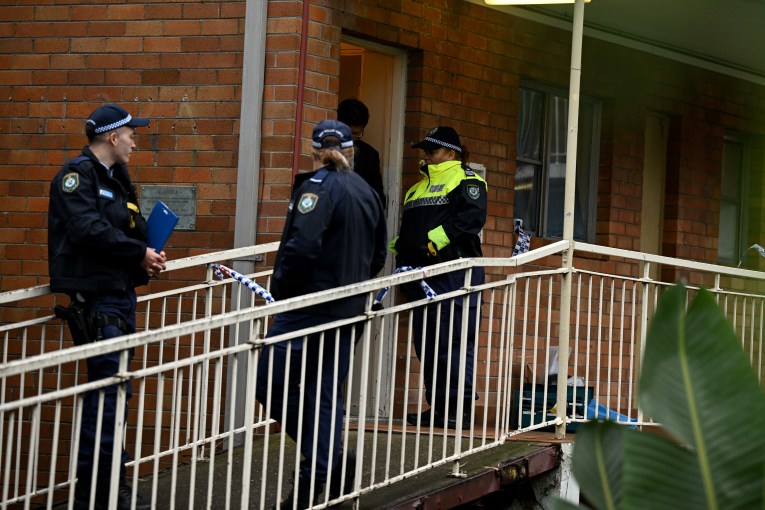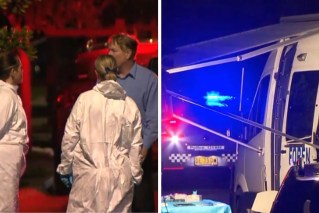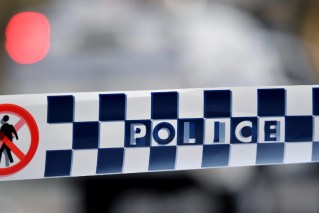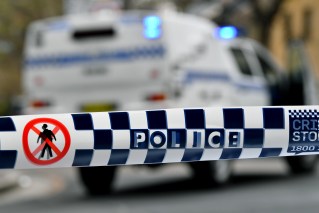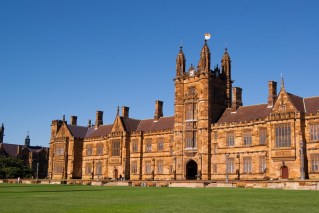St Vincent’s cancer under-dosing occurring for years
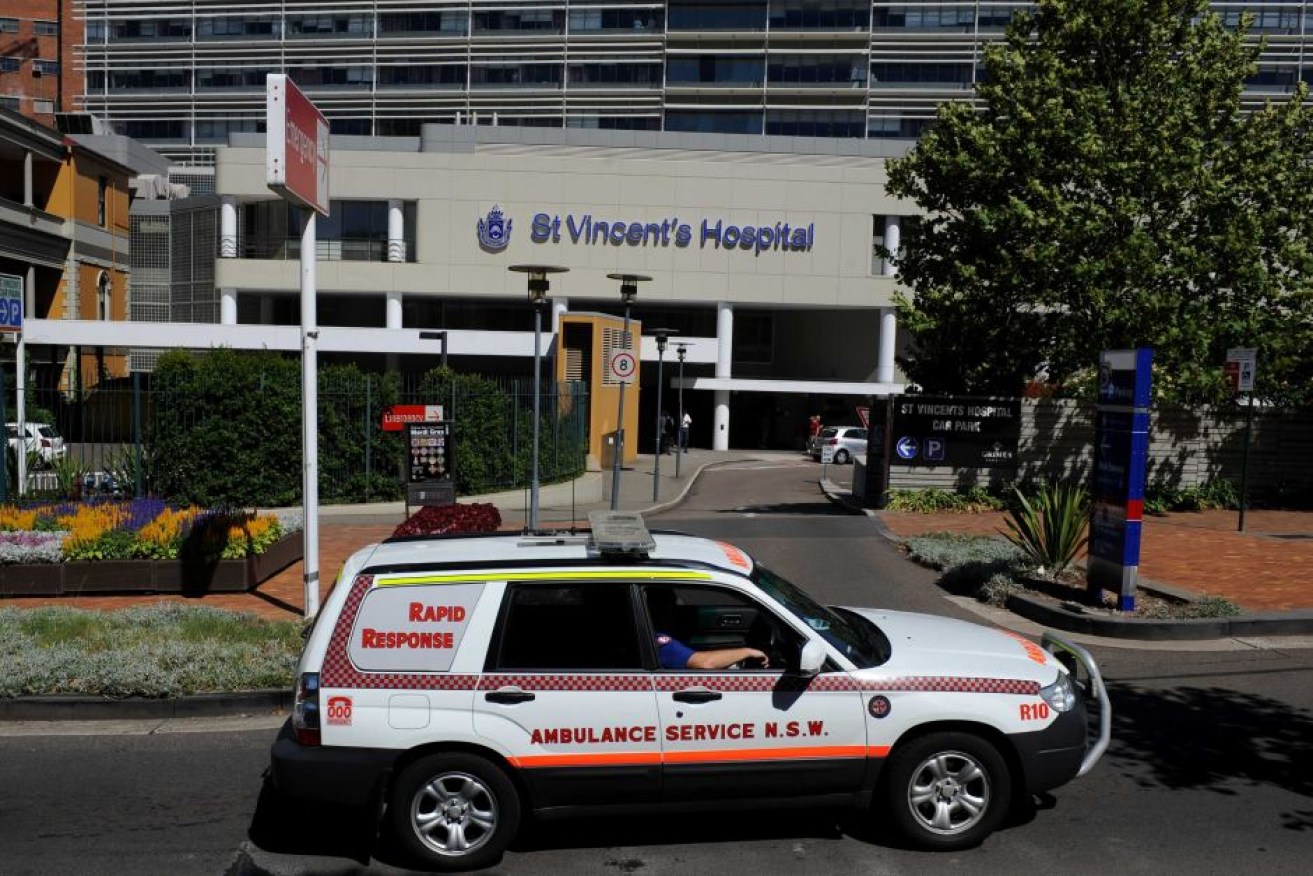
AAP
Under-dosing chemotherapy for cancer patients at Sydney’s St Vincent’s Hospital for head and neck cancer may have been occurring as far back as 2005, not 2012 as previously acknowledged, a new report says.
In February, it was revealed that more than 70 cancer patients being treated at the prestigious St Vincent’s Hospital received significantly less than the recommended dose of a chemotherapy drug.
Head or neck cancer patients were given a low 100 milligrams dose of carboplatin since 2012 by one of the hospital’s medical oncologists, Dr John Grygiel.
• Cancer diagnosis bungle: executive sacked
• ‘Junk’ policy: cancer patient without cover
• Dying cancer patients are better off at home
An interim report by Cancer Institute NSW CEO Professor David Currow found “staff interviewed indicated that the flat dosing of carboplatin was raised with Dr Grygiel on many occasions from at least 2005”.
The usual dose of carboplatin is between 200 milligrams and 300 milligrams, depending on patient’s kidney test, age and sex.
While the inquiry did not find evidence of a cover-up, it found the hospital had made false and misleading public statements about the under-dosing.
“The hospital’s public statement that ‘no patients appeared to have suffered any negative impact as a result of the dosage issue’ is not accurate because the internal and external reviews did not examine any patient-level outcome data from this off-protocol prescribing,” the report said.
The inquiry recommended that its scope be expanded to include all patients treated by Dr Grygiel at St Vincent’s Hospital as well as those treated by him in the Western NSW Health District before 2006.
The hospital’s public statement also indicated Dr Grygiel was “immediately counselled and placed under supervision”.
“The review team has been advised that, in fact, this did not occur,” the report said.
Patients should have known sooner, hospital apologises
The report was also critical of St Vincent’s disclosure to patients, finding there was a “significant delay” in telling patients what had happened.

The under-dosing may have been occurring as far back as 2005.
“Almost all of the people affected or their families only received disclosure after a media report going to air,” the report found.
“The response by St Vincent’s, when it realised there was an issue, failed to demonstrate an understanding of the distress this issue was likely to cause patients and their families.
“There appears to have been an acceptance of Dr Grygiel’s explanation for using a flat dose of carboplatin without appropriate provision … of peer reviewed literature.”
The report lists 20 recommendations, including that St Vincent’s apologise as soon as possible to patients and their families.
St Vincent’s CEO Toby Hall said the hospital would implement all the recommendations in the interim report.
“We acted too slowly when these issues were first raised,” he said.
“We apologise for the distress this has caused patients and their families for what they have been through.”
This won’t happen again, hospital CEO says
Investigators found of the 78 patients treated with the 100 milligram dose of the chemo drug, 23 died of cancer, three died from non-cancer issues and four died with an unspecific cause of death.

An investigation says oncologist Dr John Grygiel was not placed under supervision and counselling. Photo: Supplied/ABC
“At this point in time, the inquiry is unable to quantify the impact of this prescribing,” the report said.
Mr Hall said new procedures had been introduced to ensure the same mistakes were not made again and that all cancer patients were treated by multi-disciplinary teams.
“We have appointed Dr Robert Thomas, a cancer expert from Melbourne, to review our implementation of the recommendations to ensure this never happens again,” he said.
He said the hospital had also put in electronic management of medications to review every dose of chemotherapy given to patients at the hospital.
The report found neither the practitioner (Dr Grygiel) nor the head of medical oncology have been available for interview in regards to the investigation.
‘Impossible to prove no patients suffered’
The report found that no one took overall responsibility for addressing the incident.
“This delayed advising and supporting patients and their families,” it said.
Last month, 7.30 obtained internal St Vincent’s Hospital documents which showed that 82 patients had been given less than the recommended dosages, not 70 as the hospital previously declared.
The documents also showed the hospital’s pharmacy had challenged the low dosages and a nurse had logged an incident in the hospital’s computer warning system as early as February 2012.
That warning was apparently never transmitted to the appropriate staff.
Internal hospital emails also question the hospital’s assertion that had been no negative impact on patients.
But, in an email sent on February 24, the new director of cancer services, Dr Anthony Joshua, wrote: “It would be more correct to say that it is impossible to prove that no patient suffered a negative impact.”
-ABC
